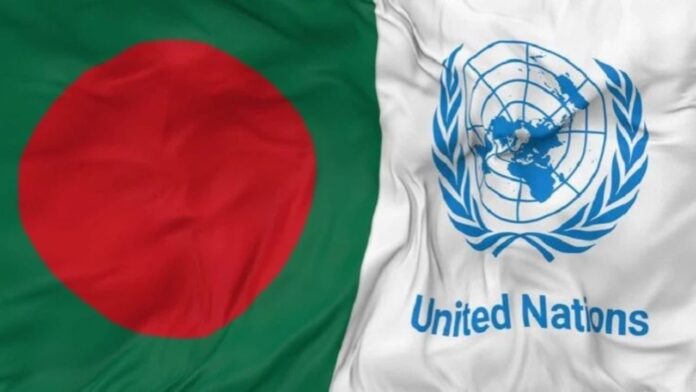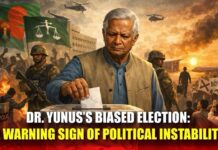UN’s public intervention raises questions over national sovereignty foreign pressure undermines Bangladesh’s constitutional and legal framework
UN’s remarks on the disappearance cases involving army officers directly contradict Bangladesh’s Constitution, the Army Act, and the Code of Criminal Procedure, drawing strong reactions from legal experts. According to experts, the UN has interfered directly in Bangladesh’s internal judicial process and constitutional structure. The statement by UN High Commissioner for Human Rights Volker Türk on the accused army officers is being described as “a dirty form of diplomatic pressure and a humiliating aggression against the law of a sovereign state.”
Under Bangladeshi law, the UN’s demand is entirely illegal. In his statement, Volker Türk said:
“The officers in military custody must be promptly produced before a competent civilian court.”
However, legal experts argue that this call violates three fundamental pillars of Bangladesh’s legal framework:
- Constitution (Article 93(2)) — No ordinance is valid without parliamentary approval. The amendment bringing military officers under the International Crimes (Tribunals) Act 1973 was never passed by Parliament, making such trials unconstitutional.
- Bangladesh Army Act 1952 — Clearly states that no serving officer may appear before a civilian court without military authorization. Doing so constitutes a breach of military discipline.
- Code of Criminal Procedure 1898 (Section 197) Requires prior government sanction before any public servant can be charged for actions committed in the course of duty.
Therefore, the UN’s demand disregards Bangladesh’s Constitution, the Army Act, and the CrPC, violating the country’s core legal order.
UN’s stance breaches diplomatic etiquette. Public comments by a UN official on an ongoing judicial matter in a sovereign country are considered diplomatically unethical and legally intrusive.
A retired justice stated:
“The UN High Commissioner has no authority to interfere in a nation’s judicial jurisdiction. This is not only a legal overreach but also a breach of diplomatic norms.”
An international law expert added:
“Bangladesh is a member state of the UN, not a colony. According to Article 7 of the Constitution, the people not the United Nations are the source of state power.”
Jurisdictional Crisis of the Tribunal
- The International Crimes Tribunal was originally established to try war crimes. The 1973 law did not include active military officers within its jurisdiction. During military rule, an ordinance added the term “members of the armed forces,” but Parliament never ratified it making that amendment legally invalid.
- Thus, the Tribunal has no jurisdiction over serving military officers.
- Legal experts warn that summoning army officers to civilian courts without proper authorization is not only a legal flaw but also a serious blow to national security and state discipline.
“The army represents the sovereignty of the state. Bringing its officers under civilian trial undermines the constitutional balance.”
UN’s Double Standards and Peacekeeping Pressure
- At the same time, the UN has reportedly ordered the withdrawal of Bangladesh’s last police peacekeeping contingent from Congo. Analysts view this as “part of political pressure” designed to influence the Bangladeshi government internationally.
“When Bangladesh is pursuing justice under its own laws, the UN’s interference reveals its real intention to obstruct domestic judicial proceedings and weaken the morale of the armed forces.”
Article 2(7) of the UN Charter
- According to this article: “Nothing contained in the present Charter shall authorize the United Nations to intervene in matters which are essentially within the domestic jurisdiction of any state.”
- This means the UN cannot interfere in any country’s internal laws, judicial system, or administrative decisions.
- The UN High Commissioner’s statement thus violates both the principle of sovereign equality under international law and Bangladesh’s Constitution, which prohibits any foreign body from intervening in domestic judicial processes.
“The UN’s remarks are not about human rights they represent a form of ‘legal aggression.’ Such unauthorized intrusion into a sovereign state’s internal legal affairs breaches even the UN Charter itself.”
- the UN’s position challenges Bangladesh’s sovereignty, Constitution, and rule of law. It is not a defense of human rights but a blatant attempt to exert foreign influence over an independent nation’s judiciary.





